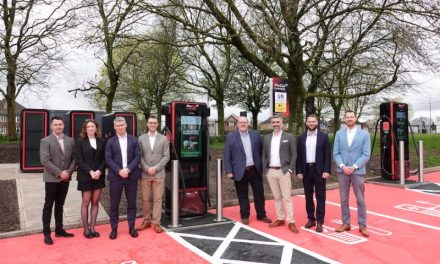Employees at Energy Assets (EA) are marking Global Recycling Day on 18 March in the best possible way – by closing in on a company-wide objective to cut landfill waste to zero.
Two years ago, roughly 60 per cent of the general waste produced by EA and Energy Assets Utilities (EAU) ended up in landfill. Now, following the introduction of a far-reaching environmental strategy involving all employees across the network of offices, only four per cent reaches landfill – a figure set to reduce to zero by December 2020. The company now also produces enough energy from food waste to power a home for 45 days.
Gavin Allan, environmental and sustainability co-ordinator at Energy Assets, said that progress towards the milestone had been a team effort.
“Everyone has got behind the campaign to minimise waste and to ensure that anything we produce is either recycled, upcycled or converted to generate energy through anaerobic digestion or advanced thermal treatments,” said Allan. “We have developed a traceability system which means that we know exactly what happens to the materials placed into our segmented bins.
“For example, our mixed paper collections are converted into tissue paper; cans and tins are recycled into new cans; plastic bottles are used to produce bags for life and some building products; and our food waste and residual waste generates energy through anaerobic digestion plants. Some food waste can even be converted into fertiliser.
“Another aim is to sell scrap metal resulting from our activities to support training and awareness for our people and to provide facilities to encourage recycling.”
The company collects comprehensive data on waste as part of its commitment to monitor performance in line with its ISO 14001 accredited environmental management system.
“Another big objective of the programme is to influence the behaviour of our people outside the workplace,” said Allan. “We know environmental sustainability is a major challenge for the whole country, so we hope that the good practices that we implement at work will also influence what happens to waste at home.”



